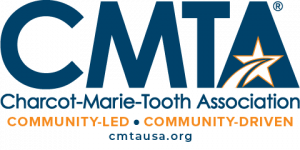CMTA's $450K Investment Targets New Approach to Treatment for Patients with CMT1A and CMT1B
Building on Previous CMTA-Funded Success, New $450K Investment Accelerates Research to Treat CMT1A and CMT1B
GLENOLDEN, PENNSYLVANIA, UNITED STATES, April 2, 2024 /EINPresswire.com/ -- The Charcot-Marie-Tooth Association (CMTA), the largest philanthropic funder of Charcot-Marie-Tooth (CMT) disease research aimed at bringing treatments to patients, announced today an investment of $450K into a new scientific approach for CMT1A and CMT1B, two common forms of the disease. This important work will be led by Jordan VerPlank, Ph.D., at Uniformed Services University of the Health Sciences in Bethesda, Maryland, and builds upon previous successful CMTA-funded initiatives. This investment is part of a key strategic imperative at the CMTA to support research with the potential to treat broad patient populations within the community.The early work from the VerPlank lab showed that increasing cyclic guanosine monophosphate (cGMP) levels could improve myelination, nerve conduction, and motor coordination. These new studies will investigate the mechanism by which boosting cGMP could mitigate neuropathy by facilitating the breakdown of disease-causing mutant proteins and preventing their harmful intracellular accumulation, in both laboratory studies and in animal models of CMT1A and 1B.
This study will use a treatment that has already been approved by the FDA for other diseases, called drug “repurposing,” which can speed up the process of clinical development for new indications. “With the knowledge that comes from this research,” says VerPlank, “we may be able to develop new therapies for CMT1A or CMT1B, and potentially other subtypes of CMT, that activate the specific degradation of the neuropathy-causing protein.”
Katherine Forsey, Ph.D., CMTA chief research officer, said “this innovative approach targeting cGMP by repurposing an approved drug represents a promising avenue in our relentless pursuit for treatments. Strategic investments like this underscore the CMTA Strategy to Accelerate Research (STAR) commitment to pushing the boundaries of scientific exploration that accelerate the groundwork for potentially many types of CMT.”
About CMT
Named after the three doctors who first described it in 1886: Charcot, Marie, and Tooth, CMT affects one in every 2,500 people—a rare disease subdivided into multiple subtypes, each with a lower prevalence. Due to the degradation of their nerves, people with CMT suffer lifelong progressive muscle weakness and atrophy of the arms and legs, and can affect other parts of the body. This leads to problems with balance, walking, hand use, and more. There currently is no treatment or cure for this debilitating disease.
About the CMTA
The CMTA is a community-led, community-driven 501(c)(3) nonprofit organization with a mission to support the development of new treatments for CMT, to improve the quality of life for people with CMT, and, ultimately, to find a cure. As the leading global philanthropic funder of CMT research, the CMTA unites the community with clinicians and industry experts to accelerate the advancement of treatments, with investments of more than $24 million since 2008. For more information, visit https://www.cmtausa.org
Kenny Raymond
Charcot-Marie-Tooth Association
+1 734-862-8702
email us here
Legal Disclaimer:
EIN Presswire provides this news content "as is" without warranty of any kind. We do not accept any responsibility or liability for the accuracy, content, images, videos, licenses, completeness, legality, or reliability of the information contained in this article. If you have any complaints or copyright issues related to this article, kindly contact the author above.

